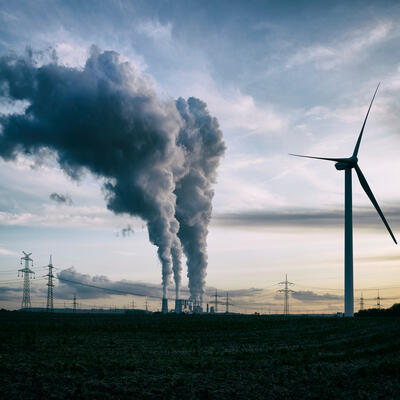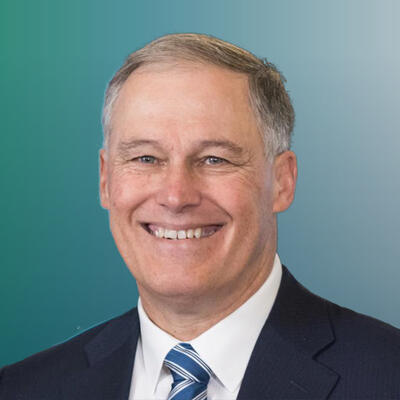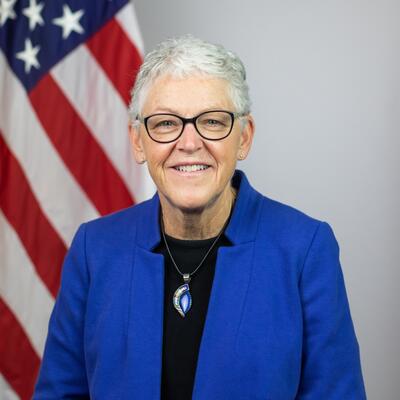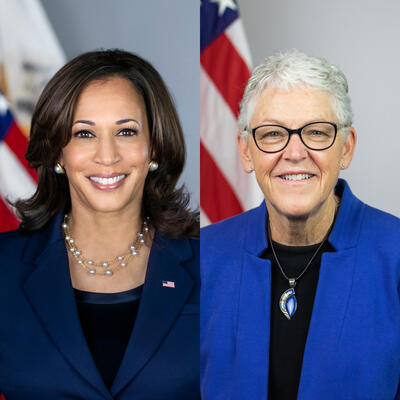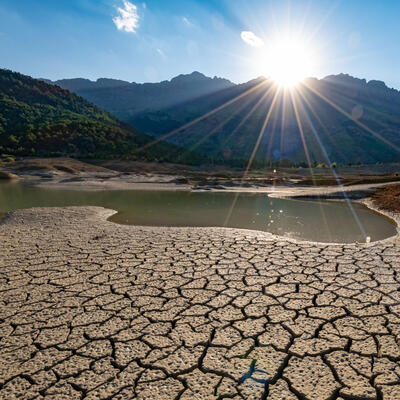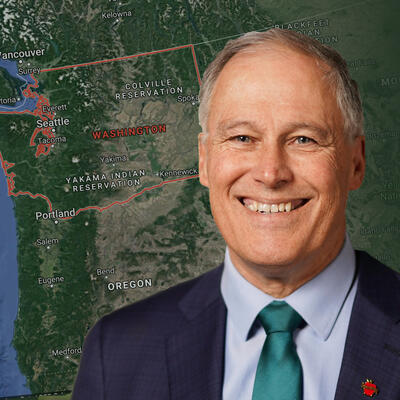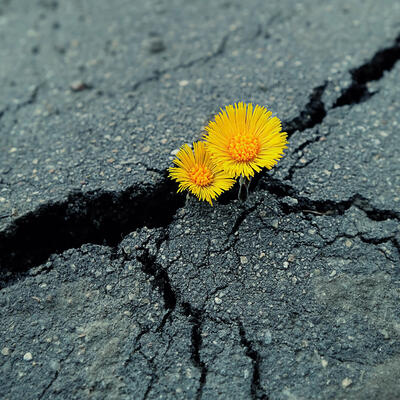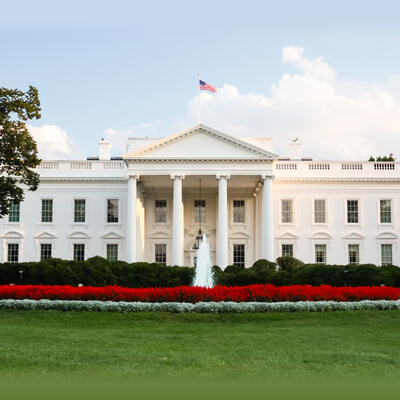
John Kerry, Gina McCarthy and Biden’s Climate Team
Guests
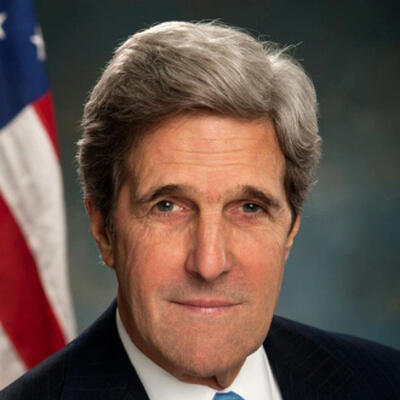
John Kerry
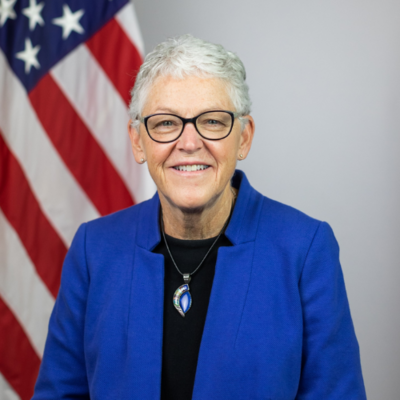
Gina McCarthy
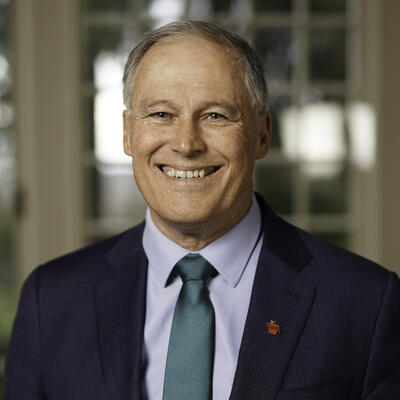
Jay Inslee
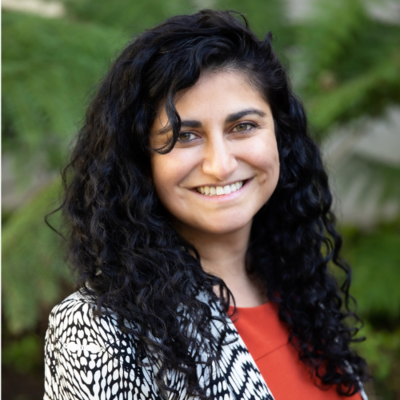
Sonia Aggarwal
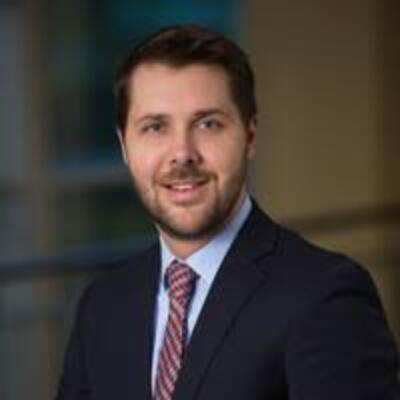
Brian Deese
Summary
Joe Biden did not start out as the “climate candidate” – that was a title first claimed by Washington Governor Jay Inslee, one of more than two dozen Democratic candidates jockeying for position in the early days of the 2020 presidential campaign. When Inslee spoke on the Climate One stage in May of 2020, climate was top of mind for him.
“Everybody’s got a to do list right on your refrigerator,” Inslee said. “This cannot be just on the next president's to do list, because if it's not job one, it won't get done.”
Inslee, who dropped out of the race a few months later, can arguably be credited with helping to push the climate crisis into the campaign conversation, onto the debate stage and higher on the agenda for candidate Joe Biden.
Fast forward nine months, and President Joe Biden is looking at everything through a climate lens – from jobs and infrastructure to international diplomacy, public health and social justice.
“He really is a person who was engaged somewhat in climate, but I don't think it was as yet sort of ingrained into him,” said former EPA Administrator Gina McCarthy. “Well, it is now!”
When McCarthy spoke on Climate One last September, Biden had yet to be elected to the presidency. She has since been named to the post of White House National Climate Advisor – and she’s ready to get to work.
“I don't just want greenhouse gases, I want fossil fuels gone,” McCarthy states vehemently. “I don't want to help fossil fuel industry to extend their life. I want them to recognize that this is bringing down communities most importantly, environmental justice communities.”
McCarthy is just one of the climate leaders that President Biden has tapped for prominent roles in his administration. Another is former Secretary of State John Kerry, whom Biden has chosen for the newly created position of U.S. Special Presidential Envoy for Climate. Now that the United States is back in the Paris Agreement, Kerry’s job is to convince other countries that we’re serious about cutting global carbon emissions -- and prod them to do more.
Kerry joined Greg Dalton for a conversation in April of 2020. At the time, he was already deeply invested in the climate fight, having declared a World War Zero on carbon pollution.
“It’s really putting the nation on a war footing to avoid the next pandemic which will be exacerbated by the climate crisis, and the way to get ahead of it is to prepare and make the decisions now,” says Kerry. “The long-term energy future of America is not going to be written in fossil fuels”
In their Climate One discussion, Kerry pointed out the need for major investments in innovation and research, a task that will be spearheaded by Sonia Aggarwal, Biden’s newly appointed Senior Advisor for Climate Policy and Innovation. Aggarwal spoke at Climate One in 2019 about the state of global climate solutions. At the time, she was Vice President of Energy at the consulting firm Energy Innovation.
“It’s been pretty amazing to see how the market has taken off to really bring down the cost of clean energy,” Aggarwal said then. “And what impact that’s making in a lot of different places around the world.
“I’m optimistic about the future,” she added. “One of the things that makes me the most optimistic is that we have clean energy technologies that can be deployed at speed and scale, and are being deployed at speed and scale.”
Jay Inslee was recorded in front of a live audience at the Commonwealth Club in San Francisco on May 2, 2019
Gina McCarthy was recorded via video on September 22, 2020
John Kerry was recorded via video on April 21, 2020
Sonia Aggarwal was recorded in front of a live audience at the Commonwealth Club in San Francisco on January 17, 2019
Brian Deese was recorded via video on April 16, 2020.
Related Links:
‘Climate Czar’ positions point to Biden’s dual approach to the global crisis (Audubon)
The Biden Plan for a Clean Energy Revolution and Environmental Justice
Every cabinet job is about climate change now (Washington Post)
Biden adds six policy experts to his climate team (E&E news)
Biden appoints Brian Deese to lead National Economic Council (CNBC)
Full Transcript
Greg Dalton: This is Climate One. I’m Greg Dalton.
Joe Biden did not start his campaign as the “climate candidate.” But as he starts his second month as president, he is looking at everything through a climate lens.
Gina McCarthy: He really is a person who was engaged somewhat in climate but I don't think it was as yet sort of ingrained into him. Well it is now. [:12]
Jay Inslee: Look, you know, everybody’s got a to do list right on your refrigerator. This cannot be just on the next president's to do list because if it's not job one, it won't get done. [:10]
Greg Dalton: Today, we revisit Climate One conversations with some of the leaders President Biden has enlisted to carry out his climate plan.
John Kerry: The long-term energy future of America is not going to be written in fossil fuels. [:05]
Gina McCarthy: We need two-fers. I don't just want greenhouse gases, I want fossil fuels gone. [:14]
Greg Dalton: Climate leaders in the Biden administration. Up next on Climate One.
---
Greg Dalton: Who are the key players on Biden’s climate team?
Climate One conversations feature all aspects of the climate emergency: the individual and the systemic, the exciting and the scary. People in power, and those disempowered. I’m Greg Dalton.
Gina McCarthy: We now have a president that I believe has full throated the effort of addressing climate and his engagement in it and I'm really excited about it. It is by far and away the most aggressive climate plan of any presidency. Can it get better? Sure. [:17]
John Kerry: It’s really putting the nation on a war footing to avoid the next pandemic which will be exacerbated by the climate crisis, and the way to get ahead of it is to prepare and make the decisions now. [:15]
Former EPA Administrator Gina McCarthy and former Secretary of State John Kerry, are two of the climate leaders that President Joe Biden has tapped, to put his ambitious climate plan into action.Today, we’ll revisit conversations with McCarthy, Kerry and other Climate One guests from the past year, who have prominent roles in the Biden-Harris administration.
But first - a look back at the early days of the 2020 presidential campaign. In the spring of 2019, there were still more than two dozen candidates jockeying for position in the crowded Democratic field. But at the time, only Washington Governor Jay Inslee made climate the main theme of his bid. He dropped out of the race a few months later, but he can arguably be credited with helping to push the climate crisis into the campaign conversation, onto the debate stage and higher on the agenda for candidate Joe Biden.
In May of 2019, just one day before he announced his ambitious climate plan, Inslee joined us for a live Climate One event, where he gave us a sneak preview.
PROGRAM PART 1 - JAY INSLEE
Jay Inslee: So we ought to believe that we can have 100% clean electricity that ought to be something that we can tell Americans that they can have. We have to have a way to decarbonize our transportation system. We know that it’s possible driving electric cars, I drove a hydrogen fuel cell car the other day around the capital quadrant.
We know that we need to or want to save literally billions of dollars on our heating and cooling costs. So we need to improve the efficiency of our buildings. And my approach will be unique for several reasons. Number one it will be multi-sectoral, I will address each one of these sectors with a specific proposal on how to deal with that specific proposal. Number two, it will be based on a real-life scenario where we have really looked at the possibilities in each sector. Number 3, it’ll be based on successes that we have had in my state. This is not unicorn and rainbows. It is based on successes that we can show that I've actually delivered. Number four, we’ll have somebody who believes in concrete ideas, not just airy dream like a trance states and we will actually put concrete policies proposal. And last and I think frankly the most important thing in this is to elect a president with a personal compelling passionate commitment to this mission statement.
Look, you know, everybody’s got a to do list right on your refrigerator. This cannot be just on the next president's to do list because if it's not job one, it won't get done.
====================
Greg Dalton: Washington Governor Jay Inslee, speaking at Climate One about his presidential run as “the climate candidate” in May of 2019. We also talked about the importance of transitioning away from fossil fuels and into a clean energy economy - without leaving anyone behind.
====================
Jay Inslee: Look, the people who work in these industries, great people, hard-working people, we should embrace and help them through this transition. We're going to have a transition in this period to decarbonize the economy. There are two things we have to do, not one thing, but two things we have to do in that transition. One, we have to break the bondage of the federal government to the fossil fuel industry, and that's for guys like me come in who are willing to fight that bondage politically. It's also why we have to get rid of the filibuster so we can finally pass climate change legislation in the U.S. Senate that is absolutely a predicate to success. But the other thing we have to do is to make sure we embrace the families that have worked in some of these older technologies of fossil fuel industry. Because these are good Americans, we need to respect them and care for them and help them through this transition. That’s a just transition.
Greg Dalton: You’ve talked about a just transition you’ve been traveling the country, you’ve seen people affected by wildfires which ravage the West, floods. When those things happened, people who don't have insurance people who have least amount of financial resources to bounce back. What should the government do because I interviewed Gov. Christine Todd Whitman once she said, Uncle Sam cannot continue to be writing $60 billion checks after these disasters.
Jay Inslee: The first thing we need to do is stop forest fires from raging and destroying us which means we got to stop climate change. That's the first job of government. But we do need to help these communities we’re gonna have to just from a community standpoint. I visited both Paradise, California and I drove through at night, 25,000 people and it was like a post apocalypse Hollywood movie. I went to Seminole Springs and talked to people with mobile homes. And the people with mobile homes usually sort of uninsured and they lost everything in these communities. So it's just heartbreaking. I was in Hamburg, Iowa a few weeks ago. It was founded in 1858, it had never been flooded before and now it’s under 5, 6, 7 feet of water and about half of it destroyed. So I know firsthand the pain of climate change and I've seen it throughout the United States.
I do believe that we have to focus while we’re going through this effort to defeat climate change, to focus on the first victims which are as I've talked about frequently people in poverty, frequently people communities of color, indigenous communities. We need to help them with their utility bills for instance, in my hundred percent clean electrical grid we have a provision to help lower income people with their utility bills. We want to focus our infrastructure spending with the victimized communities first. And if we play our cards right we will have a more just country at the same time that we have a healthier country and I think we’re capable of doing that.
==============
Greg Dalton: Washington Governor Jay Inslee in 2019, when he was running for President. Next we turned to how the next administration should go about rebuilding and transforming America’s infrastructure to make it more resilient and energy-efficient.
=====================
Jay Inslee: Well, one of the things about infrastructure,I think one of the important things to note is that traditionally when we said the word infrastructure we immediately think of bridges and highways, right? That’s been sort of our idea about infrastructure. I think now we have to expand that by a factor of three. Because infrastructure now has to include our utility systems, our water systems that are on the verge of collapse our transmission systems of water. And we have to think of infrastructure much more broadly. The third aspect of that is we have to think of infrastructure as a critical part of the climate change plan.
We have to find a way to do that that is the most well-targeted and reasonable way to get the biggest bang for our buck. I'll just mention some of the things we know we need. We need better transmission systems to be able to wheel renewable energy from where the sun shines and the wind blows to where we're using that electrical energy. We know we have to have massive expansions of our electrical storage capacity, because we do need to maximize utility of renewable intermittent energy systems. Then the granddaddy and grandmother of them all, which is our building infrastructure which is going to require very significant investment in that infrastructure from a variety of sources.
But I would point out when we do this and that’s important on infrastructure, we talk about this, one of the challenges I have found at the clean energy discussion is a lot of people think of it, well, that's just for the physicist and the computer scientists and you know, the people who design solar cells. No, no, no, no. This is for carpenters, teamsters, IBW members, plumbers, sheet metal workers. These are the folks who are gonna be rebuilding our infrastructure. And that is why this so accessible as a job creation engine in the United States.
----
Greg Dalton: Washington Governor Jay Inslee, who set the bar for Democratic Presidential candidates, including Joe Biden. After the break, past Climate One conversations with leaders Biden is counting on to put his climate plan into action -- including former Secretary of State John Kerry.
John Kerry: What a lot of people ignore,unfortunately, is that here in the United States we are currently spending vast sums of taxpayer money in order just to clean up after the impacts of climate change. [:15]
Greg Dalton: That’s up next, when Climate One continues.
---
Greg Dalton: This is Climate One. I’m Greg Dalton, and we’re revisiting my conversations with climate leaders recorded before they joined the Biden-Harris administration.
Gina McCarthy served as chief of the US Environmental Protection Agency in President Obama’s second term. Now, she is President Biden’s top climate advisor in the White House.
McCarthy joined us last fall, prior to Biden’s election. I began by asking her what lessons can be drawn, from the failure of Barack Obama and Joe Biden to get a national climate plan in place when they were in office together, and how President Biden might handle things differently this time around.
PROGRAM PART 2 - GINA MCCARTHY:
Gina McCarthy: One of the things that thankfully I think Joe Biden did when he really was getting the nod for his nomination and before that happened is he spent a lot of time with environmental justice advocates. You know, he really is a person who was engaged somewhat in climate but I don't think it was as yet sort of ingrained into him. Well it is now, you know, because they personalize this for him. And he’s a very personally wonderful human being just from knowing him. So, the lesson is that for me has always been don't talk about climate as a planetary problem. Don't actually dissect it from all the other systemic challenges we have with conventional pollution and with systemic racism that has led to so many communities having disproportionate impact.
And then make sure you talk about it in relevant terms. You know, I think way too much as green groups really just talk about the only thing, we care about is birds and bunnies who are lovely, but really, we’re all talking about human beings and human lives and needs to be related to families. It needs to be related on the ground improvements. So, my hope is that instead of running to now big solutions that don't dedicate real benefits to black and brown Hispanic indigenous communities first and foremost that those no longer are the thing to shoot for. We need two-fers. I don't just want greenhouse gases I want fossil fuels gone. I want fossil fuels out of products. I don't want to help fossil fuel industry to extend their life. I want them to recognize that this is bringing down communities most importantly, environmental justice communities. And the best thing about Biden’s plan is he centers justice and equity and he indicates and commits to 40% of the investments that we need to make to boost us out of our economic doldrums are actually going to be invested in environmental justice communities.
So, between the time he started campaigning for this presidency and the time he was nominated. We now have a president that I believe has full throated the effort of addressing climate and his engagement in it and I'm really excited about it. It is by far and away the most aggressive climate plan of any presidency. Can it get better? Sure. You’re sitting with three women advocates who are gonna demand better, but we’ll always do that because it’s never gonna be enough because we got to act to do it all now. [2:57
=====================
Greg Dalton: When I spoke with Gina McCarthy last year, she was head of the NRDC Action Fund. We discussed if it was enough for well-meaning people to throw money at environmental and social justice issues, while still keeping the underlying market structures in place, and maintaining their own comfortable distance from the problems.
==================
Gina McCarthy: No. No, I think life is changing and you know the reason why we’re seeing people my age on the streets is probably because we were given the gift of having grandchildren. And so, I'm not now worried about my sacrifice I am worried about handing to them a future that I’m gonna be proud of. And I’ve worked my entire life in this and if you think I wouldn't really talk turkey with some of these older people who think you can still remain comfortable and that you can sort of position yourself to get a little done, but only have much meaning in my life is just not right. You know, I wanted to have meaning in my life I'm sick and tired of the embarrassment of systemic racism. And yes, I’m uncomfortable about all the change I need to do as quickly as people are demanding at NRDC and other places of course it’s uncomfortable but we got to embrace it, right. This is the time for change. The only thing that gets me up in the morning is to know that we are so bad off that change is essential.
And that we can fix this if everybody's voice is heard. And that if nobody speaks for somebody else but we speak in unity together. And if we can get that done, you know, I love the idea that there are people who have been comfortable sitting in Congress for 40 years getting used to this little march of really pokey people, right. If they just get a, you know, a sense that they can't be comfortable anymore that having these 40 years doesn't give them any benefit. And in fact, if they haven't figured it out by now, they’re not gonna hang around. I really think that's great. You know what I call that, Greg, and you'll figure this out. It's called democracy. You know if you don’t do the will of the people and instead you want to maintain things as they are because it benefits you or because you don't think you contributed to the problem, then I’m sorry it’s just not working anymore.
So, we got to get comfortable being uncomfortable. And we gotta stop trying to make it go away in a flash and really make people go away in a flash out of government. We haven’t figured out that we don't need little steady progress, but we need big leaps. We need those to be doable. We need them to bring people behind. We need them to shift jobs not leave workers behind. We need labor engaged. We just have to be smart enough to recognize that this is a social system. Where you fix the system, not a single thing in it you fix it all at once. And we can figure that out; this is not rocket science.
==================
Greg Dalton: The new climate push threatens fossil fuel companies, which give millions in campaign cash to Congressional Republicans and, to a lesser extent, Democrats. Throughout her career as a government regulator, Gina McCarthy has often locked horns with those energy producers.
====================
Gina McCarthy: These fossil fuel companies are just literally shameless to be honest with you. So, they'll never go away. I think one of the biggest challenges we have to face and it was a challenge that was pretty much front and center in the Green New Deal and ends up being a significant sort of a push point in the Biden plan is that these Democrats are worried about the economy in their states. We have to acknowledge that we are worried about the economy in their states. I'm worried about jobs. That's why if it's a systemic issue you worry about the economy and jobs. It's not like we want to shut down all of the coal mining and just leave people to their own devices. We’re talking about a just transition. So, will that make them happy. Maybe not, but they have to get over the fact that the world is changing, it’s just how. And if you don't want a world that is going to change and shut everything down then we have to talk about transitioning the world we have to a new system.
This plastics issue drives me crazy. If anything drives me crazy it’s sort of this one because the fossil fuel industry is sitting under the radar screen as if the problem with plastics wasn’t theirs. The reason plastics don't go away is they’re fossil fuels in another form. And the industry as soon as they realize they might be phasing out of some part of the power sector. They started building huge plastics factories where? In Cancer Alley. Because these people need jobs. Nobody needs a new plastics factory. Everybody needs a job, right. And so, it's just the shamelessness of this.
But the other issue that I want to hit is this. You know, we are overtaken now by people who just talk about individual freedoms. It’s this whole mask thing, right. As if they're exerting their own personal freedom. The United States was built in a certainly a regulatory structure. It was built on the fact that every human being has a right to air, clean air, clean water, clean land, a safe place to live, a house over their heads, good food to be able to eat, that’s individual freedom. Individual freedom isn't about masquerading by getting rid of regulations that are solely in place because you stop other people from having those fundamental rights and so you have to be regulated. See, so this is my life here. I don’t regulate to add burden. I regulate to allow people to have their lives. And because otherwise how is a single individual or community going to stand up to a coal producer or company in their midst if it wasn't the government stepping in and doing its job to protect people. So, this whole sort of bastardization of the idea of individual freedom is really behind so much of the challenges we have today. You have no right to kill other people. You have no right to do that.
Greg Dalton: Gina McCarthy, we used to hear a lot about carbon pricing. Some people that is the holy Grail the main way, do that and everything else falls in place but I don’t hear about it as much as now. How central is carbon pricing?
Gina McCarthy: I am praying that people realize that that was yesterday’s idea. And today it’s all about doing something that we can make sure that everybody benefits from. I’ve never agreed with the carbon price. I don’t think life is that easy that I can find one solution. It guarantees nothing about protecting human beings where they live, and it doesn't actually do the trick to get rid of the other pollutants that always come along with fossil fuels. So, it is not my thing I think if you look at the cast of characters that are pushing for it you may get a good sense that maybe they're not the ones that really are the ones you want to listen to. So, I'm not into those things. I want to do things on the ground to improve people's lives today as part of the system of getting at climate change. And it doesn't mean I want little actions it means I want big ones that actually matter, but not what I considered to be potentially false promises.
Greg Dalton: Gina, you say that, you know, talking about this planetary and these huge ginormous numbers. I’ve been doing this a long time I don't know what a megawatt or a gigawatt is. How should people talk about climate in a way that's real?
Gina McCarthy: I think a way that's relevant to the person they're talking to really. I like to just talk about it as you know as choices. You know, do we want a clean energy future and what’s that gonna do for me. You know, how was that gonna help me today to do that. And how is it going to be the way in which if you invest in it you’re gonna drive jobs in the future. You’re gonna create innovation that's gonna provide leadership to the U.S. and that leadership is going to spread to the rest of the world. That is our obligation to think about continuing to move forward. And for the most part I really focus a lot on the health impacts because in my world in government for as long as I have, I know that the thing that we all have in common is we want our families to be healthy. And really fundamentally this is the best health choice and it brings with it all of the benefits that come with a clean energy economy as well as taking care of that pesky little climate problem. It’s really hard I think to deflect that and it's really enticing to want to think about life differently. I think right now, Greg, I don’t know about you but we're just so beaten-down with problems that I think it's really our job to tell people that there’s a future there for us and that that future has to be, you know, the one that we invest in, you know, a future that's going to bring everybody involved. And when we start doing that people will come people will come. They’ll build it, they will come. I know the movie.
============================
Greg Dalton: I spoke with former EPA Administrator Gina McCarthy last September. President Biden recently appointed her as a top climate advisor in the White House. McCarthy is tasked with coordinating efforts across the entire federal government to drastically — and quickly — lower U.S. greenhouse gas emissions.
Another climate veteran on the Biden team is John Kerry, former U.S. Senator and Secretary of State under President Obama. Kerry’s newly-created position is United States Special Presidential Envoy for Climate. Now that the United States is back in the Paris Agreement, his job is to convince other countries that the United States is serious about cutting global carbon emissions and prod them to do more.
Kerry joined us in July of 2020, while Donald Trump was still in office.
=======================
JOHN KERRY
Greg Dalton: Secretary Kerry, welcome to Climate One. U.S. carbon emissions are forecast to drop 7.5% this year. That's about the rate of decline needed to meet globally the Paris climate commitments. How can those commitments be made without the economy going off a cliff like Wile E. Coyote in the old cartoons?
John Kerry: The commitment is made if you make a transition and begin to do the things necessary to not make this the result of a catastrophe but to make it part of everyday life. The bet in Paris was that people are gonna begin immediately to be able to make that transition. And for the first two years after Paris, $358 billion a year was invested in alternative renewable energy. So the first time ever more money began to shift away from fossil fuel and into sustainable energy. If we had stayed on that track and the United States to continue to lead, we would be in a position now to begin to see where you would meet that point where these could be sustainable reductions in five years, six years, 10 years by bringing online smart grids the capacity to send energy from one part of the country to the other. Beginning to transition out of coal into alternative energy sources large solar fields, windfarms, hydrogen fuel mixed with hydro and geothermal, and other things.
But none of that planning, none of it, has taken place with a hand of the partnership between government and the private sector. And so, in fact, the opposite has happened. We have a president who pulled out of the agreement giving license to a bunch of countries in the world that were reluctant to join anyway to go back to being reluctant. And so the people we dragged to the table in Paris have become, you know, scofflaws. And in fact no nation in the world was on track to meet the Paris agreement until coronavirus hit and everything shut down. Now obviously that's not the way anybody envisioned doing it. We need to do it because we’re shifting out of the polluting fuels. And we haven't been doing that fast enough or in a concerted way. The way we’ll do it is by planning by enlisting the private sector to become part of the transition by creating a framework within which citizens across the country can afford to go buy electric vehicles. Get the auto manufacturers to commit and cooperate and show you their plans for a faster transition out of internal combustion into electric. Building out a program from the federal government to assist in building out the infrastructure necessary for the charging. I mean it’s planning. It's really putting the nation on a war footing to avoid the next pandemic. And the next pandemic will be exacerbated by climate crisis and the way to get ahead of it is to prepare and make the decisions now.
===============================
Greg Dalton: During our conversation last July, John Kerry and I discussed the role of China in the climate crisis. Two Republican elders, James Baker and George Schultz, had recently published an article noting that China had become the top exporter of wind turbines, solar panels and batteries - the building blocks of a clean energy economy. Schultz has since passed away. I asked Kerry to weigh in on Republican response to the article and on the growing rift in the Republican party.
==============================
John Kerry: Well, let me just say first of all that you should add that China is also the largest exporter of climate change emissions now. They are the dirtiest fuel provider in the world. They provide 50% of all the coal-fired power plants in the world are Chinese. And Chinese are now funding the building of new coal-fired plants through their one belt one road initiative. So we have a major, major issue to raise with China. We would like to cooperate, they should be able to cooperate. We did cooperate in Paris, but this administration not only doesn't try to go proactively to do that they're moving in the opposite direction here at home by unleashing much greater levels of pollutants into the air, cutting back on the automobile restrictions cutting back on the pollution restrictions that existed. So that has to be the predicate and that's part of the reason why that party today won't listen to George Shultz and Jim Baker the way they ought to.
Jim Baker and George Shultz are bona fide conservatives. This new group, I don't think are really conservatives at all. They are radical antigovernment disruptors who really want to just pull the system down they’re against any kind of government. Many of them are libertarians and they want to see no action whatsoever on those fronts because their definition of freedom is the freedom to be able to pollute to do the things they want to do. Jim Baker and George Shultz have a great idea which is pricing carbon. And the answer is it is one of the single most effective ways that we could begin to reduce emissions by properly pricing carbon in terms of its economic impact and cost to all of us as citizens. What a lot of people ignore unfortunately, is that here in the United States we are currently spending vast sums of taxpayer money in order just to clean up after the impacts of climate change. We had three storms two years ago that cost our taxpayers $265 billion just to clean up. Maria, Irma and Harvey. And so Sir Nicholas Stern has written a very important book about the economics of climate change and he makes it crystal clear. It is far, far more expensive to pay for inaction than to take actions.
John Kerry: It makes sense to invest in a whole bunch of things including innovation and research. We should have the largest single commitment ever in the history of our country to R&D for all of our colleges and universities our labs everybody be in the hunt for major battery storage. The day we win the battle of battery storage and get it into weeks literally two weeks three weeks we are going to win the battle. We’ve won the battle of climate. Because the minute you have that storage then you can wholesale stopgap the problem of baseload for companies factories. They got to know that their factory, their production is not gonna be interrupted by the lack of wind or the lack of sun. You've got to have the storage to provide that continuity. The day we have that you're gonna see a massive shift out of fossil fuel and a massive shift. Now, it doesn't mean fossil fuel goes away within everybody within the scientific analysis of where we need to be to have equilibrium and solve the problem of climate there is a carbon budget. We will still have carbon we will still be using oil for various things. We will still need some natural gas as a bridge fuel. But the long-term energy future of America is not going to be written in fossil fuel. There is a minister of oil in Saudi Arabia, who in the 1970s, famously said that the Stone Age didn't end because we ran out of stones and the oil age will not end because we run out of oil.
=====================
Greg Dalton: Former Secretary of State John Kerry spoke with us last July by Zoom. At the time, we were all still getting used to the “new normal” of holding meetings and conducting interviews online instead of in person. Air travel had pretty much ground to a halt; as country after country reported increased coronavirus breakouts, borders were closed and quarantines put in place. It was hard to imagine that Skype and Zoom could ever completely replace actual facetime - but Kerry saw an environmental upside.
John Kerry: Airplanes I think are going to, they're going to find a different source of power, different fuel. Biofuels, whatever it’s gonna be maybe even hydrogen, who knows. But, we’ll solve these problems. That I am convinced of. We know that human beings are contributing to this climate crisis. We also know, human beings can solve the problem. We have many of the solutions right in front of us now and we will find the rest of those that are needed. I have total confidence in our ingenuity. We just need the willpower. It's not a question of lack of capacity it’s just willpower, readiness, commitment. And we need to make that commitment.
==========================
Greg Dalton: United States Special Presidential Envoy for Climate John Kerry. He spoke with us in July of 2020.
I’m Greg Dalton and we’re revisiting my conversations with people before they joined President Biden’s climate team. Coming up, Brian Deese and Sonia Aggarwal.
Sonia Aggarwal: One of the things that makes me the most optimistic is that we have clean energy technologies that can be deployed at speed and scale and are being deployed at speed and scale. [:10]
Greg Dalton: That’s up next, when Climate One continues.
---
Greg Dalton: This is Climate One. I’m Greg Dalton. We’ve been hearing from some of the members of President Biden’s new climate team.
John Kerry pointed out the need for major investments in innovation and research, a task that will be spearheaded by Sonia Aggarwal, Biden’s Senior Advisor for Climate Policy and Innovation. I talked with her in early 2019 about climate change solutions around the world. At the time, she was Vice President of Energy at the consulting firm Energy Innovation.
In her overview of the clean energy transition, Aggarwal began with the view from California.
PROGRAM PART 3 - SONIA AGGARWAL
Sonia Aggarwal: Here we have a suite of policies which really look at each of the different sources of greenhouse gas emissions whether it’s power plants or factories, cars, buildings, agriculture. And have set targets and put together really detailed policies to move us to a lower carbon system overall here. So I would say honestly California is doing quite well there’s also of course quite a few other countries that are really moving quickly. I would say also in Europe if you look at Spain and Ireland, there’s a lot of progress there. But it’s been pretty amazing to see how the market has taken off to really bring down the cost of clean energy and what impact that’s making in a lot of different places around the world.
Greg Dalton: You did some early research on McKinsey cost curves and economics of various energy systems. How do you think nuclear fits in in the market today in the mix?
Sonia Aggarwal: Sure. So I guess I’ll just start by saying it’s absolutely right that we have to think about reliability and making sure that electricity is delivered affordably and reliably to everybody who needs to rely on it. And I would say that as we look at wind and solar which are only available when the wind is blowing and the sun is shining, there’s a huge number of technologies and new ways of operating the power system that can deliver that electricity just as reliably and as regularly as what are sort of traditionally base load dispatched power plants like nuclear or coal. So I guess I would just say starting there it is absolutely possible to put together a portfolio of zero carbon resources that looks many different ways and delivers electricity reliably.
So then looking at cost comparisons I think it’s been really interesting to see some of the very exciting technology neutral auctions that have been happening across the United States and in other parts of the world over the last few years, especially as coal plants have started to retire. We’re seeing some numbers that I think are kind of nuts honestly not just for solar coming in or wind coming in which are extremely low cost and have come down let’s see, solar is 90% cheaper than it was 10 years ago, wind at 70% cheaper batteries are 80% cheaper than they were.
But that’s kind of the key point too here, especially in this context of dispatchability and balancing the grid. Solar-plus-storage and wind-plus-storage in some of the most recent auctions are coming in at cost that are below the ongoing operating cost of existing coal plants and that’s just a crazy time if you think about it in a system that has traditionally moved very slowly it’s a pretty amazing moment. And we have seen the evidence of this, you know, these are just the most recent auction results but this has been the kind of inexorable decline over the last decade and we’re seeing more and more renewable energy capacity built here in the United States as a result of that.
I’m optimistic about the future and I think that one of the things that makes me the most optimistic is that we have clean energy technologies that can be deployed at speed and scale and are being deployed at speed and scale. Of course we have to go faster. A statistic that I heard recently was that do you stay within two degrees if we started in 2000 we would need to reduce greenhouse gas emissions by 3% per year. If we started now we have to reduce them by 10% per year. This is global. And then if we wait 10 more years we have to start reducing greenhouse gases at a rate of 30% per year.
Now that’s a staggering statistic to me. We are not currently reducing greenhouse gas emissions so we do need solutions that can happen at speed and scale but if we’re in such a great time where people are living longer there’s access to new information there is new technology available to us, I think we’re in a better position than we ever have been to get that going fast. And we’re seeing some really interesting fast scaling resources happening around the U.S. and around the world. China is building nuclear power plants, Texas is building three gigawatts of solar and five gigawatts of wind within the next couple of years which that’s, you know, a typical nuclear power plant is about a gigawatt.
============================
Greg Dalton: Clean energy consultant Sonia Aggarwal on the Climate One stage in February of 2019. She has just been chosen to join the Biden climate team, as Senior Advisor to the President for Climate Policy and Innovation.
In her new position, Aggarwal will be overseeing national efforts to decarbonize our energy industry. Back in 2019, one of our audience members had a question for Aggarwal about what that might look like.
==========================
Male Participant: This may be a little more in depth than you typically think but you guys are pretty wide ranging. And so if you owned a gas and electric utility call it you’re a director on that or CEO whatever all you want, what would you do to decarbonize?
Sonia Aggarwal: So I would first take a look at my existing fleet of generation resources to understand where I’m coming from, right. So what kind of system am I operating in I would look at over time are we gonna see a lot more electricity demand in my region. Then I would start to think about putting out technology neutral auctions for which ever zero carbon resource can come in to provide electricity that we are going to need over the next 10, 20, 30 year period. I would also make a very clear public statement about what emission reduction target I have the sooner the better and zero is the right answer. So then start to put together a portfolio of resources that can deliver that electricity over time at least cost and reliably.
Of course I would also this perhaps is a little nerdy again but looking at new tools for how you think about system management is really important right now because we are moving into an era where we have a lot more variable resources on the generation side. We have a lot more opportunities for deploying resources more flexibly for thinking about how do we smartly electrify everything how do we make sure that people can charge their cars at home and feel comfortable with their heating and cooling and do so in a way that’s gonna be the most efficient for the individual and for the system and as an integrated whole.
Greg Dalton: Sonia I wanna ask you, you’re the optimist do you ever have moments of fear or doubt where you say, boy, this is scary, I don’t know if we can do this at this scale. You have moments of like maybe my friends are all alarmist and it's not as bad as they think?
Sonia Aggarwal: Definitely. I mean this is a problem with quite overwhelming magnitude especially looking at those statistics around how quickly we need to really start seeing results in bringing down greenhouse gas emissions. I sort of think of it as how far we have to bring them down and how quickly we have to bring them down. That means that we need really to be working with everything that we’re putting out there now has to be zero carbon and we have to be letting all the technologies compete to get out there as quickly as possible that are zero carbon. So yes, I mean the magnitude is overwhelming but I also have a lot of faith in humanity.
========================
Greg Dalton: Sonia Aggarwal is now Senior Advisor to the President for Climate Policy and Innovation. I’m Greg Dalton.
Greg Dalton: Brian Deese is President Biden’s Director of the National Economic Council. When he joined us last April, Deese was still the Global Head of Sustainable Investing for the investment firm, BlackRock. We talked about how uncertainty in financial markets created by the COVID pandemic, might be diverting money away from renewable energy.
========================
BRIAN DEESE
Brian Deese: Well look, there’s a set of immediate and urgent fiduciary elements particularly when you see the kind of market dislocation and liquidity issues that we saw in the month of March. But if you step back, I think for us, we came into this year and this pandemic crisis with climate risk is investment risk. And more generally that we were on the front edge of a larger decade-old structural shift in investor preferences that really changes and up ends a lot of how traditional financial models intrusion of financial analysis assesses sustainability risk. And as we look at what's happening in the current environment it actually gives us a very interesting test case to try to understand some of these convictions and some of these hypotheses that we’ve operated with.
As we come out of this crisis, I believe that we are going to see key elements of sustainability rise in importance for companies and for governments and regulators as they grapple with the longer-term implications of this crisis. A lot more to say about that but I think suffice to say that our perspective and our conviction around the importance of sustainability coming into this crisis is reinforced by what we’re seeing. And I think it's going to likely become an even more central part of the conversation going forward.
The last point I would make though that is connected with transition is that ultimately, the pace of the global low carbon transition will be dictated by the ambition and the effectiveness of government policy globally. And as somebody who spent a lot of time working to and getting the Paris agreement agreed to and then entered into force in 2015, 2016, I think you look at that framework and you see in it the potential for countries to increasingly increase the ambition of their national policies, their nationally determined commitments in a way that would signal long term trajectory of how the economy will decarbonize that would then accelerate massive transformations of capital and shifting of private capital. Obviously the state of global policy is not where it needs to be. I think that we will see an acceleration but the more that that ends up happening too late and in an uncoordinated way but doesn’t provide those long-term signals. But more challenging it’s going to be for capital to actually move and accelerate this process.
========================
Greg Dalton: When I spoke with Deese, It was a turbulent time, as the full force of the pandemic was becoming apparent. Black Lives Matters protests were awakening the country to generations of systemic racial inequities, that cause Black and brown Americans to be unevenly impacted by coronavirus. That turned the conversation to the more personal topic of empathy.
=========================
Brian Deese: If you live in Atlanta today you’re 15% more likely to die from coronavirus than if you live 15 miles outside in the suburbs. Because the local air quality in Atlanta is bad and it exacerbates respiratory diseases. As we move into the winter in the southern hemisphere and we see this crisis extended to emerging market economies. We’re gonna see the kind of disproportionate impact where you see the intersection between air quality and pandemic. We know the intersection between climate change and disease. It was coronavirus here but we see the extension of vector-borne illnesses as climates change and in fact, as habitats and humans start to intersect with each other. And in fact animal borne disease or diseases that initiate in animals are much more likely to occur and spread as climate change forces people into closer proximity.
And so as a global community we need to be much more capable of actually preparing and being in front of this. But I would say, to your point about gratitude and empathy, I would add to it urgency because even as we’re talking about these sort of how do we get to these longer-term issues. The actions that government policymakers that first responders that health professionals and that investors take in the next weeks and months will help to also reinforce whether or not we can come out of this having blunted some of the worst impacts of that or not. So, I also in addition to feeling that gratitude and sense of connectivity to these larger challenges I also feel some urgency around this making sure that we're doing everything we can to not have the impacts of this crisis which already will be huge even more as we move into the next phase or phases of this epidemic.
---
Greg Dalton: This is Climate One. That was Brian Deese, last April. He’s now Director of the National Economic Council in the White House.
We’ve been revisiting my past conversations with Deese and other climate leaders who have joined President Biden’s team: Sonia Aggarwal, John Kerry and Gina McCarthy. We also heard from Washington Governor and former presidential candidate Jay Inslee, whose campaign platform helped sow the seeds for Biden’s ambitious climate plan.
Greg Dalton: To hear more Climate One conversations, subscribe to our podcast on Apple, Spotify or wherever you get your pods. Please help us get people talking more about climate by giving us a rating or review. It really does help advance the climate conversation.
Greg Dalton: Kelli Pennington directs our audience engagement. Tyler Reed is our producer. Sara-Katherine Coxon is the strategy and content manager. Steve Fox is director of advancement. Anny Celsi edited the program. Our audio team is Mark Kirchner, Arnav Gupta, and Andrew Stelzer. Dr. Gloria Duffy is CEO of The Commonwealth Club of California, the nonprofit and nonpartisan forum, where our program originates. I’m Greg Dalton.
